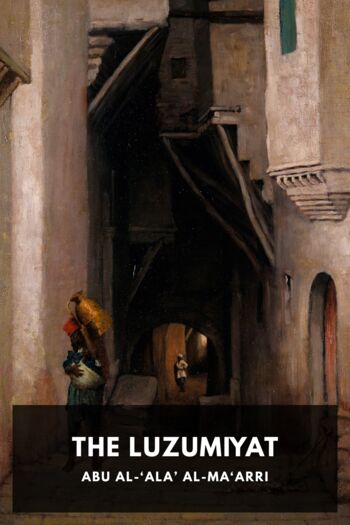Description
At the height of the Islamic Golden Age, in the first half of the 11th century, the Arab poet and freethinker Abu al-ʻAlaʼ al-Maʻarri touched off an entire literary scene around himself in his hometown of Maʻarra, Syria. With a religious skepticism bordering on atheism, al-Maʻarri attacked the established religious orthodoxy of his day, venturing to criticize Islamic, Christian, and Jewish doctrines alike. Calling himself “thrice-imprisoned” by his blindness, isolation, and physical embodiment, he argued for the ethical position of antinatalism and lived a life of asceticism (becoming in the process one of the first recorded individuals who intentionally lived what contemporary individuals might call a “vegan” lifestyle). These concepts all emerged in his poetry, part of which has survived in a collection known as the Luzumiyat or Unnecessary Necessity, a title referring to a challenging rhyme scheme that he invented and adopted for his quatrains.
This Standard Ebooks edition of the Luzumiyat is based on Ameen Rihani’s translation. Rihani, a notable Syrian-American poet and author in his own right, was one of the first major translators of al-Maʻarri into English. This translation is not a complete translation of the Luzumiyat, which even today is not generally available to the English-reading public, but is a selection of quatrains presented alongside some from an earlier poetry collection, the Saqt az-Zand.


Аннотация к книге